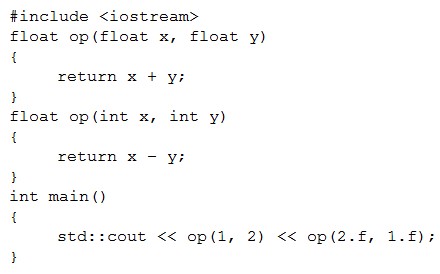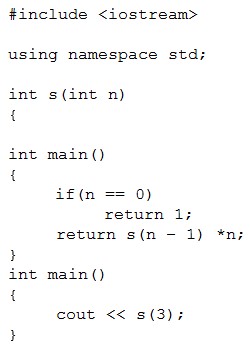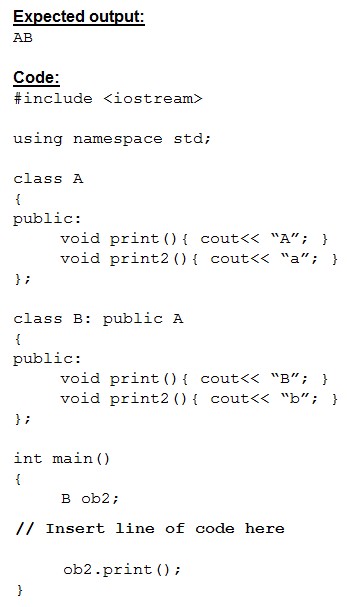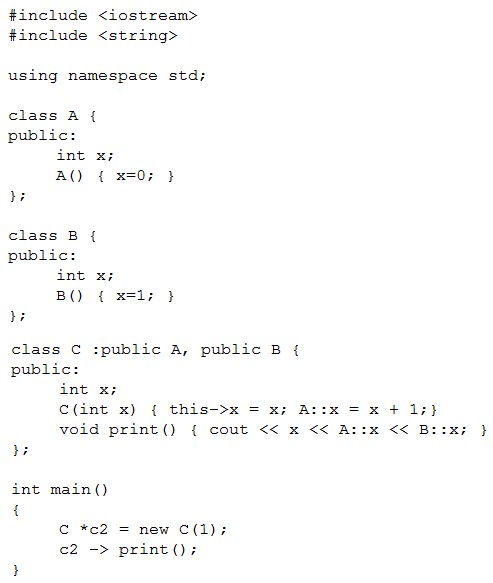C++ Institute CPA-21-02 - CPA - C++ Certified Associate Programmer
What happens when you attempt to compile and run the following code?
#include
using namespace std;
int fun(int x) {
return 2*x;
}
int main(){
int i;
i = fun(0.5) || fun(0);
cout << i;
return 0;
}
What is the output of the program?
#include
using namespace std;
class BaseC
{
int i;
public:
BaseC() { i=?1;}
BaseC(int i) { i=i; }
void seti(int a) { i = a; };
void Print() { cout << i; }
};
int main()
{
BaseC *o = new BaseC();
o?>seti(10);
o?>Print();
}
What happens when you attempt to compile and run the following code?

What happens when you attempt to compile and run the following code?
#include
#include
using namespace std;
class A {
protected:
int y;
public:
int x, z;
A() : x(1), y(2), z(0) {}
A(int a, int b) : x(a), y(b) { z = x * y;}
void Print() { cout << z; }
};
class B : public A {
public:
int y;
B() : A() {}
B(int a, int b) : A(a,b) {}
void Print() { cout << z; }
};
int main () {
A b(2,5);
b.Print();
return 0;
}
What happens when you attempt to compile and run the following code?
#include
using namespace std;
class First
{
public:
void Print(){ cout<<"from First";}
};
class Second
{
public:
void Print(){ cout<< "from Second";}
};
int main()
{
Second t[2];
for (int i=0; i<2; i++)
t[i].Print();
}
What happens when you attempt to compile and run the following code?

Which code line inserted instead of the comment below will cause the program to produce the expected output?

What happens when you attempt to compile and run the following code?
#include
#include
using namespace std;
class A {
public:
A() { cout << "A no parameters";}
A(string s) { cout << "A string parameter";}
A(A &a) { cout << "A object A parameter";}
};
class B : public A {
public:
B() { cout << "B no parameters";}
B(string s) { cout << "B string parameter";}
};
int main () {
A a1;
A a2("Test");
B b1("Alan");
return 0;
}
What happens when you attempt to compile and run the following code?

What happens when you attempt to compile and run the following code?
#include
using namespace std;
class First
{
public:
void Print(){ cout<<"from First";}
};
class Second:public First
{
public:
void Print(){ cout<< "from Second";}
};
void fun(First *obj);
int main()
{
First FirstObject;
fun(&FirstObject);
Second SecondObject;
fun(&SecondObject);
}
void fun(First *obj)
{
obj?>Print();
}



